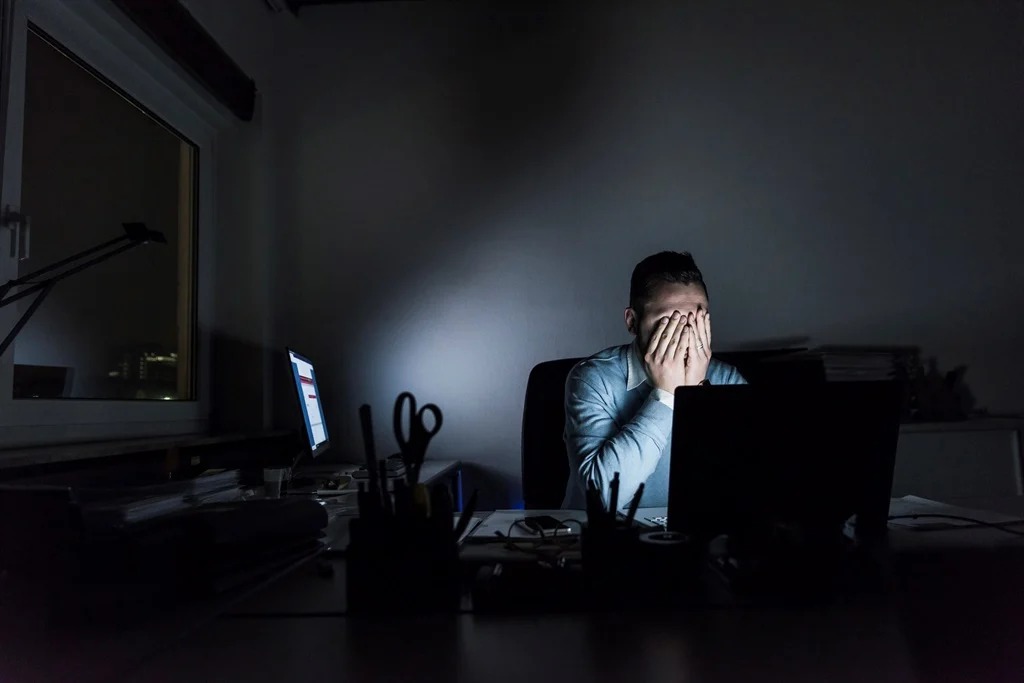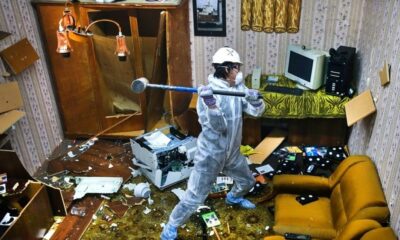Best of Johannesburg
How Burnout Became the Silent Epidemic Among South African Workers in 2025

If you’ve ever scrolled through LinkedIn or X and seen someone admit they’re running on fumes, you’re not alone. In South Africa 2025, burnout isn’t just a fad term; it’s a real, pervasive crisis affecting nearly one in three employees. What started as “too much work” quietly morphed into a full-blown epidemic, accelerated by both local pressures and global shifts. Let’s dig into how we got here, who’s suffering most, and what we can actually do about it.
From “Overworked” to “Overwhelmed”
The line between work and home life has blurred wildly. When the COVID-19 lockdowns forced us into remote work, many were relieved to skip the commute. Over time, though, those new freedoms backfired. With no physical boundary between “office” and “living room,” people started answering emails in bed, doing meetings after dinner, and tending to household emergencies in the middle of calls. The always-on culture took root.
Add to that South Africa’s harsher realities: electricity blackouts (load-shedding), delayed services, insecure infrastructure, and public anxiety about crime and safety. Workers may have flex hours or hybrid setups, but when your WiFi cuts off mid-presentation or your power goes down just as you’re catching up, the stress compounds.
In 2025, this convergence has pushed burnout from “common” to “everywhere.” Professionals report hitting fatigue levels by March or April; years back, we’d expect that by November. (Yes, earlier in the year.)
A Perfect Storm: Why SA Workers Are Especially Vulnerable
| Pressure | Impact on Burnout |
|---|---|
| Economic stress (inflation, unemployment, debt) | Many workers carry financial worry on top of their job duties. The mental load never lets up. |
| Infrastructure failures | Load-shedding means disrupted productivity, a scramble to catch up, and weird schedules. |
| Toxic work dynamics | Unrealistic deadlines, overreliance on high performers, weak leadership. |
| Mental health stigma & weak support | Most do not feel safe admitting struggle; few get proactive help. |
| Disrupted social support | From lockdowns onward, we lost casual human interactions that buffer stress. |
This isn’t just “you’re tired” or “you need sleep.” When burnout sets in, it becomes a cascade: exhaustion leads to detachment, then to reduced performance, then to deeper mental health issues.
Who’s Getting Hit Hardest
Some demographics are showing alarming burnout rates:
-
Junior doctors: In 2024, study data showed 57.9% to 78.0% of doctors in health facilities met burnout thresholds. In one tragic case, a young intern collapsed and later died while on duty, raising serious questions about the system’s tolerance for suffering.
-
Call centre agents: With aggressive performance targets and high emotional labour, many in this sector experience burnout early and often.
-
Young professionals (20s and 30s): Entered the workforce during years of instability, carrying financial stress and high expectations.
-
Women, LGBTQI+, and marginalised groups: Report worse outcomes in work stress, often facing added pressure, microaggressions, or unseen labour at home.
Scholars also note that employees already living with mental health conditions tend to show higher burnout under the same demands, because their capacity is taxed harder.
The Real Price Tag
Burnout doesn’t stay in the office. It leaks into families, friendships, physical health, and eventually the national economy.
-
Health consequences: Prolonged burnout may lead to anxiety, depression, cardiovascular issues, weakened immunity, digestive problems, and sleep disruption.
-
Work impact: Absenteeism shoots up. People show up but can’t really function. Sick days grow. Quitting becomes a way out.
-
Institutional loss: When experienced staff leave, organisations lose knowledge and spend time and money retraining.
-
Economic toll: Economists estimate that untreated mental health issues, burnout included, cost South Africa about R161 billion annually in lost productivity, presenteeism, and premature mortality.
It’s not just personal suffering; it’s a silent drain on the country’s progress.
What We Need to Do Now
Burnout recovery isn’t one size fits all, but a few strategies are proving essential.
For organisations
-
Prioritise psychological safety. Make it okay to talk about mental health.
-
Train managers to spot early signs of stress, redistribute workloads fairly, and respond with empathy.
-
Enforce after-hours boundaries: no emails, no virtual demands.
-
Offer confidential help like Employee Assistance Programmes, counselling, and stress management resources.
-
Encourage routines of rest, disconnection, and real breaks.
For individuals
-
Learn your tipping point: keep track of mental load before it explodes.
-
Establish nonnegotiable boundaries (e.g. no device after 8pm).
-
Build a local safety net: friends, mentors, mental health professionals.
-
Practice stress relief regularly: walking, sleep hygiene, and creative outlets.
-
Be brave: if things feel unmanageable, seek support early, not later.
A Local Awakening
In Joburg coffee shops and WhatsApp chats, people are finally naming it: burnout. Some share stories of panic attacks in boardrooms. Others admit they’ve never felt “off duty.” On social media, mental health hashtags are increasingly common among professionals, a shift from silence to solidarity.
Conferences in 2025 are tackling “digital dilemmas” and “psychological safety” head-on. Mental health forums now spotlight burnout among SA’s younger workforce. Even in boardrooms, some leaders are saying: ignoring mental health is not an optional risk any longer.
In 2025, South Africa will have crossed a threshold. Burnout is no longer an individual problem. It’s systemic. The solutions lie not only in rest and resilience but also in structural change, better leadership, safer organisations, and a culture that values humanity over hustle.
We can do better. We must do better.
Also read: Beyond Pay: Why Workplace Generosity Is the Secret to Loyalty in SA’s New World of Work
Follow Joburg ETC on Facebook, Twitter, TikT
For more News in Johannesburg, visit joburgetc.com
Featured Image: News24



























